How Are You Affected by Social Isolation?
Take our three-minute assessment to help you understand if you’re at risk and get helpful recommendations based on your results.
Find Out Your Risk
Answer eight simple questions to help you understand how social isolation may be affecting you.
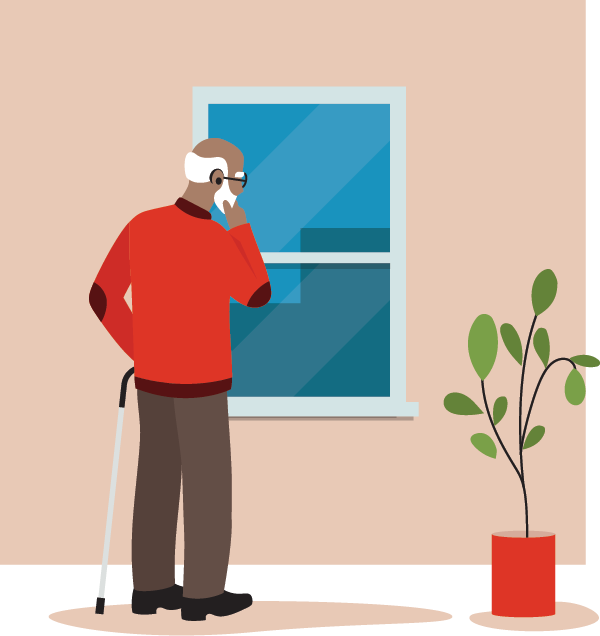
Go you! Building and maintaining friendships is important, especially as we grow older. Stay involved in hobbies and activities that interest you. If your current activities are feeling ho-hum — try something new.
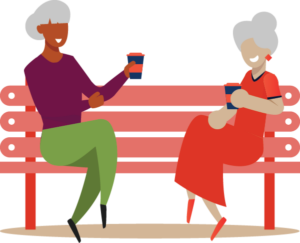
Building and maintaining friendships is important, especially as we grow older. One way to do that is to stay involved in hobbies and activities that interest you. Try to participate in a group activity that’s meaningful to you at least once a week. Not sure what’s meaningful to you? Try new activities until you find one you enjoy.

Excellent! Cultivating and maintaining relationships is essential.
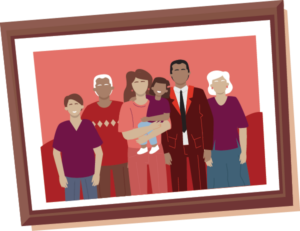
It’s important to spend time regularly with people we care about. If you find yourself thinking about a friend or family member, give them a call just to say “hi.” You can also set up a regularly scheduled phone call or video chat — even if it’s just to talk about your favorite TV show or sports team.

Caregiving can be both stressful and isolating. Be sure to take time for yourself, and stay connected to your social circle. Find local resources to help you get the support you may need.
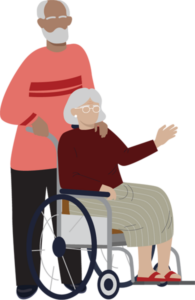
At one time or another, many people become caregivers. If at some point you find yourself providing daily care to someone, be sure to take time for yourself and stay connected to your social circle.

Stay until the end to find transportation resources in your community. If public transit exists in your area, call to ask about options for older riders.

That’s wonderful to hear! Good transportation options can help you stay connected.

Don’t be afraid to ask for help. There are community programs, such as paratransit or volunteer transportation providers, that can help you get where you need to go.
If leaving your home is simply too challenging, many communities offer friendly phone calls or grocery delivery.
Find transit resources at the end of this assessment.
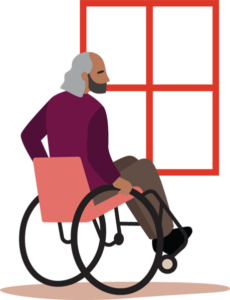
That’s great! Feeling stuck at home can lead to isolation. As you grow older, getting out of the house to meet a friend for coffee or even just running an errand will help you stay connected.

If you’re having trouble understanding conversations, sounds seem muffled, or you have to turn the volume higher when listening to music, TV, or the radio, you may be experiencing hearing loss. Untreated hearing loss can keep us from engaging with others, leading to isolation and loneliness.
Talk to your healthcare provider. An accredited audiologist can evaluate your hearing and help find the right solution for you, and hearing tests are often covered in full by insurance.

That’s great! Learn what you can do now to prevent hearing loss later. Visit the AARP Hearing Center, at the end of this assessment, for more information about hearing health.

It’s important to feel like you have people to talk to and relate to. If you’re having a hard time finding those people, consider getting involved in online group activities and trusted virtual communities — such as faith, fitness, movies, music, or sports — where you’re likely to meet people who share your interests. Senior centers and community centers may also offer in-person and online activities.
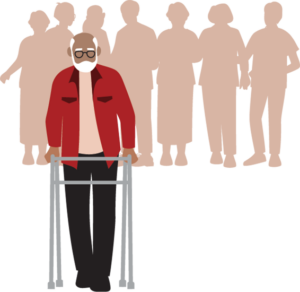
It’s great that you have people to talk to and relate to; it’s important to your well-being.

Loss and big life changes can lead to depression and cause you to pull away from social connections. Talking through loss with other people experiencing similar situations can help. Many communities offer online support groups; check with your local library, hospital, or community center. Find more resources by navigating to Build Social Connections in the Menu beneath Health.

You’re finished!
Great! If you do experience a big life change sometime in the future, it’s important to recognize you may feel like pulling away from your social connections, which can lead to depression. Finding support — through an online group, or your local community center, library, or hospital — will help you weather the change.

You’re finished!
